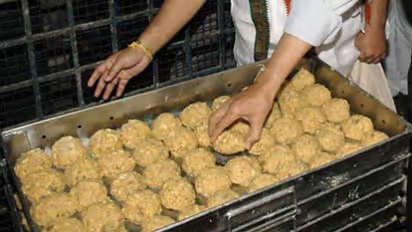Row over 'animal fat' in Tirupati Laddu: What goes into this sacred sweet explained
The Tirupati Laddu controversy centres on ingredient quality and preparation. Despite claims of using animal fat and non-Hindu workers, TTD asserts that traditional methods and ingredients like cow ghee and peanut powder are used. The laddu recipe is patented and remains a cherished offering.
Read more Photos on
